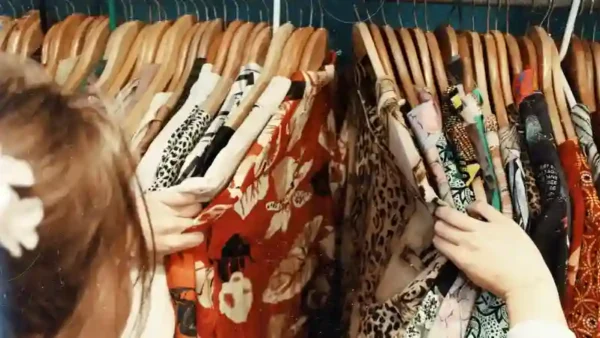Disclosure: This post may contain affiliate links, meaning we get a commission if you decide to make a purchase through our links, at no cost to you. Please read our disclosure for more info.
Last Updated on July 2, 2024 by Shopping Kim
Bringing in unwanted items for consignment can make you money and declutter your home. This is also an excellent way to eliminate old clothes you no longer wear and furniture that has outlived its usefulness. The right-to-sell section is part of your consignment agreement that allows the consignee to sell your merchandise in their store. This will typically include a time frame for when you would like to receive your sales proceeds.
In This Post:
1. A Chance to Meet New People
Many people looking for specific styles are drawn to consignment stores. These shops often carry unique inventory items, including name brands. If you’re an online seller, selling on marketplaces can significantly eliminate unwanted items and help you meet new people in your community. However, listing, posting pictures, and securing payments from potential buyers can take up much of your time. Taking your items to a local consignment store can save you a lot of work. They’ll take care of the marketing, customer service, and payments in exchange for a percentage of your profits. This makes them a great option if you’re not ready to commit to selling your items full-time.
2. Convenience
Consignment is convenient for those who want to sell items but don’t have the time or desire to organize, advertise and host their sale. Whether you are redecorating, cleaning out a storage unit, or helping a family member downsize after the death of a loved one, consignment can be a quick and easy solution. When retailers sell consigned goods, they don’t have to pay for them unless sold, saving the reseller money and preventing unsold inventory from being stored in a warehouse. This also allows the retailer to test new products with less risk. However, it’s important to note that consignors still retain title to the goods they sell, so they should always keep track of their inventory and ensure their interests are being sold properly and promptly.
3. Increased Profits
Consignment shops often take a commission on sales, which can be as high as 50%. This means you can get extra money for items that no longer fit your wardrobe or maybe don’t work for your lifestyle anymore. In addition, more and more retailers are turning to consignment to test out new merchandise without committing any capital upfront. This allows them to profit when the merchandise sells, rather than spending money and resources on inventory that may not sell. This can help them expand their product line and reach more customers. Consignment also makes it easier for them to acquire products in demand, such as baby items or designer clothes and accessories.
4. Reduced Waste
As the name suggests, consignment shops reduce waste by re-selling items that are no longer wanted. This keeps the clothes, shoes, and furniture out of landfills and prevents the raw materials, energy, and water that go into making a new item from being wasted. You can find almost anything at a consignment shop, including clothing, furniture, and kitchen tools. But be sure to bring in items that are in good condition.
5. A Chance to Get Rid of Stuff
Getting rid of clothes, furniture, and other household items through consignment can help you declutter your home and avoid adding to the billions of pounds of textile waste already on our planet. Consignment is the way to go whether you want to make extra money or clean your closet. Just keep track of your inventory and research before you decide which stores are right for you.


